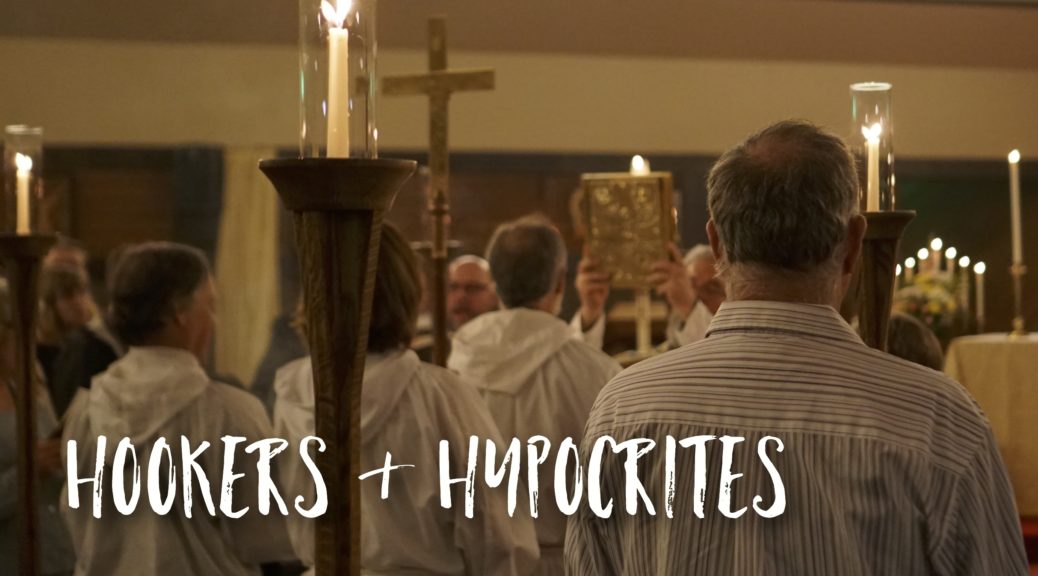
Hookers and Hypocrites
How would you choose to describe the moral state and attributes of your soul?
That question is certainly one of the most important questions humans have wrestled with for thousands of years. Philosophers, thinkers, and religious leaders throughout the ages perpetually weigh in on the topic.
Would you see yourself as doing okay? Are you a good person? Do you have good moral attributes?
A recent study found that most people suffer from a “self-enhancement effect” for moral characteristics.
The Scientific American in its analysis of this study pointed out that “when comparing ourselves versus other people, we tend to rate ourselves more highly on a host of positive measures, including intelligence, ambition, friendliness, and modesty.”
Further “while we generally cast ourselves in a positive light relative to our peers, above all else we believe that we are more just, more trustworthy, more moral than others.”
In short – statistically we are prone to think we are pretty good people.
We all join Stuart Smalley with his affirmations, “I’m good enough, I’m smart enough, and, doggonit, people like me!”
So it is a scientific fact that we are generally deluded about our moral attributes. That should unnerve us all.
But there is an even deeper truth that Jesus Christ revealed during his teaching ministry many years ago.
That truth is that we are all morally broken. Every single human. Jesus said that “no one is good but God alone”. He was echoing the prophet Jeremiah who earlier stated “the heart is deceitful above all things and beyond cure. Who can understand it?”
But what about people like myself? I was raised in a moral family, trusted God with my life from an early age, and tried to stay out of trouble. Am I good?
How should I view myself?
Are there some people who are good and others who aren’t?
Would Jesus say my family pedigree and choices make me a good person?
It is interesting to see how Jesus treated and spoke with people during his ministry.
Generally Jesus put people into two categories – repentant sinners and hypocrites. One group (the repentant sinners) has a searing awareness of their sin and wants to tell the truth (confess) to find healing. The other group (the hypocrites) thinks they are doing all right and they look down on all their fellow humans.
You can see this theme in the parable of the Pharisee and the Tax Collector in Luke 18. One man was a tax collector (considered a terrible human in those days) and when he went to the temple – he couldn’t even look up to heaven while pleading “God, have mercy on me, a sinner.” The other man was a Pharisee (or part of the religious elite of the day). While in prayer he compared himself to others and pointed out how pious and perfect he was.
Jesus said “I tell you that this man (the tax collector), rather than the other, went home justified before God. For all those who exalt themselves will be humbled, and those who humble themselves will be exalted.”
You see this theme in the story of the Lost son (or Prodigal son) and again with the two thieves on the cross at Jesus’ crucifixion. Jesus points out that we are all broken, all helpless, all sinful, all lost – but some of us just fool ourselves and try to prop up our identity with deluded self-justification. The rational and humble among us will confess they are broken and turn to Jesus for help.
C.S. Lewis wrote in his book Mere Christianity that “A cold, self-righteous prig who goes regularly to church may be far nearer to hell than a prostitute.” Yikes. Can that be true?
Yes. That is the message of Christ. A broken and repentant hooker who finds justification in Christ is surprisingly nearer to heaven than the “perfect” church-goer who is mired in self-justification and judgement of others.
Hookers or Hypocrites. Those are your two options. Sinners or Self-righteous.
We are all broken and we all need the salvation and redemption of Christ.
If we saw ourselves as we really are – how would that affect our lives? How would that affect how we treat our neighbors? How would it affect our political and religious discussions? How would that affect how we treat our online community? How would that change our family and friend relationships?
May God have mercy on us. For we are all sinners.